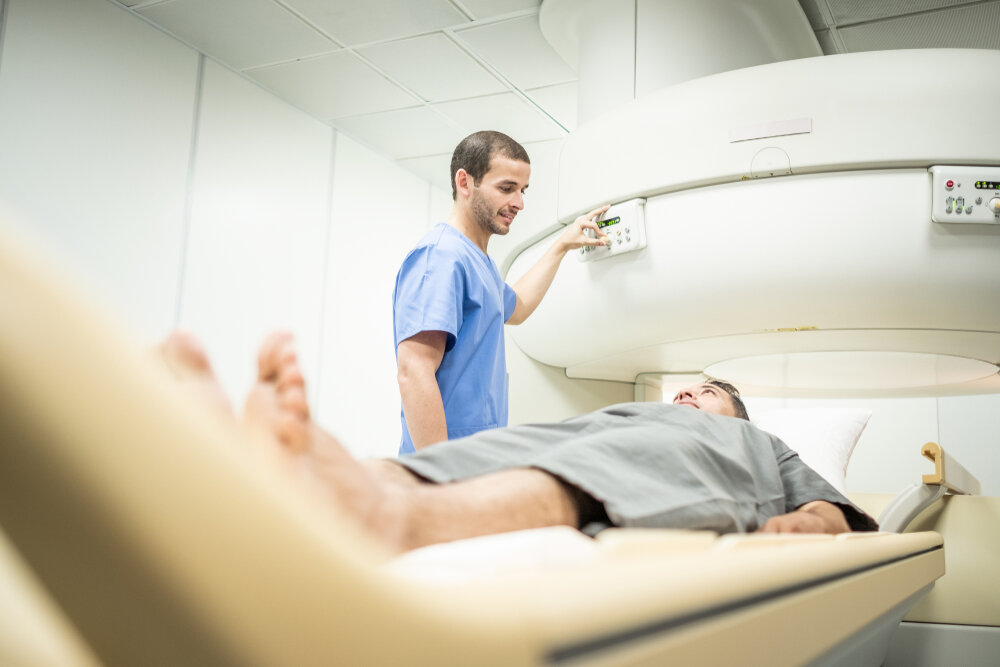Brain tumor specialist from all disciplines are working together to offer you the most updated treatment options for cancer. The state-of-the-art neuro imaging technology such as the use of positron-emission tomography and MRI is employed by our brain and spinal cancer experts.
Surgical process
Surgery for most brain tumors is the usual treatment. A neurosurgeon opens the skull to remove a brain tumor. This procedure is referred to as a craniotomy. The surgeon tries to remove the whole tumor whenever possible. If the tumor cannot be removed completely without damaging the vital brain tissue, as many of the tumors as possible can be removed by your doctor. Partial removal helps to alleviate symptoms with reduced brain pressure and reduces the amount of tumor receiving radiation or chemotherapy treatment.

Radiation
The use of high-powered rays to damage and stop cancer cells from growing is radiotherapy, also known as radiation therapy. It is often used as a means of killing cancer cells that are not removed after surgery or tumor tissue can be tested. Also when surgery isn't possible radiation therapy is used.
There can be two options for radiation therapy by a neuro-oncolohgist. External radiation is provided by a large machine. External radiation is usually given for several weeks five days a week depending on the type, the size and the age of the tumor. The prolonged total radiation dose helps to protect healthy tissue in the tumor area.
Chemotherapy
The use of drugs to kill cancer cells is chemotherapy. The >brain tumor specialist is permitted to take only one medicine or combination, usually by injection into a vein or muscle or by giving the medicines orally. Intrathecal chemotherapy involves the injection of medication into the fluid of the brain.
Your doctor will determine specific treatment for brain tumors on the basis of:
-
Age, overall health and history of your health
-
Type, place and tumor size
-
Condition extent
-
Your medication, procedures or therapy tolerance.
-
Expectations for the way the condition progresses
-
Your opinion or choice
Treatment (alone or in combination) may include:
-
Surgery
-
Chemotherapy
-
Therapy of radiation
-
Steroids
-
Medication for anti-seizures
-
Transplantation of bone marrow
-
Care support (to minimize the tumor or treatment side effects)
-
Rehab
-
Antibiotics
See us at Neuroscience for brain tumor treatment in OKC. Apart from this and neuro oncologist, we have services for spine and back problems like scoliosis, herniated disc, carpal tunnel syndrome and more.
**Disclaimer- Information presented here is not intended to be qualified medical advice. Nothing expressed herein creates a doctor-patient relationship.

